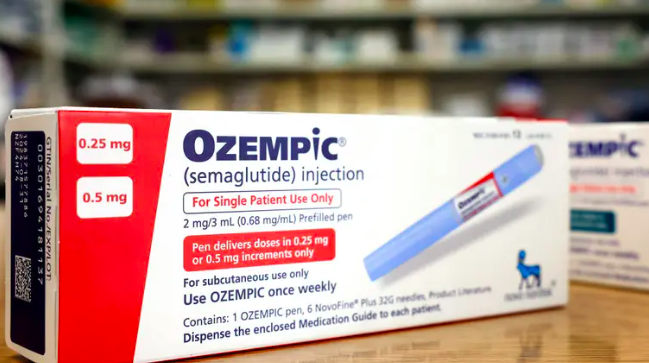Reports indicate a surge in poison control calls related to accidental overdoses involving weight-loss drugs in the United States. The focus of concern is on the obesity drug semaglutide, commercially known as Ozempic and Wegovy. Semaglutide is utilized for both diabetes treatment and weight loss. From January through November of the current year, nearly 3,000 calls associated with semaglutide were reported, representing an increase of over 15 times since 2019. Remarkably, in 94% of these calls, semaglutide was the sole reported substance.
The surge in poison control calls coincides with a period of increased demand for semaglutide. In March 2022, a shortage of semaglutide occurred after celebrities, including Oprah Winfrey, discussed their use of Ozempic for weight loss on social media. Hashtags like #wegovyweightloss and #myozempicjourney gained substantial attention, causing a strain on the drug’s supply and affecting access for individuals with diabetes.
Emergency physician Dr. Robert Glatter has cautioned against viewing drugs like Wegovy as quick fixes for weight loss. Even when used under medical supervision, individuals may experience adverse stomach and bowel effects. Nausea, vomiting, and the risk of low blood sugar are significant concerns, especially in cases of accidental overdose.
Common symptoms associated with a weight-loss drug overdose, such as Ozempic or Wegovy, include lightheadedness, dizziness, shakiness, sweating, irritability, headache, weakness, fatigue, seizures, confusion, and loss of consciousness. Medical professionals typically administer intravenous fluids and anti-nausea drugs in the treatment of patients experiencing a weight-loss drug overdose. However, there is currently no quick fix for a semaglutide overdose.
Individuals suspecting an overdose on a weight-loss drug are urged to contact their local poison control center or the national hotline at 800-222-1222 for assistance. It is essential to seek prompt medical attention in case of an overdose.

